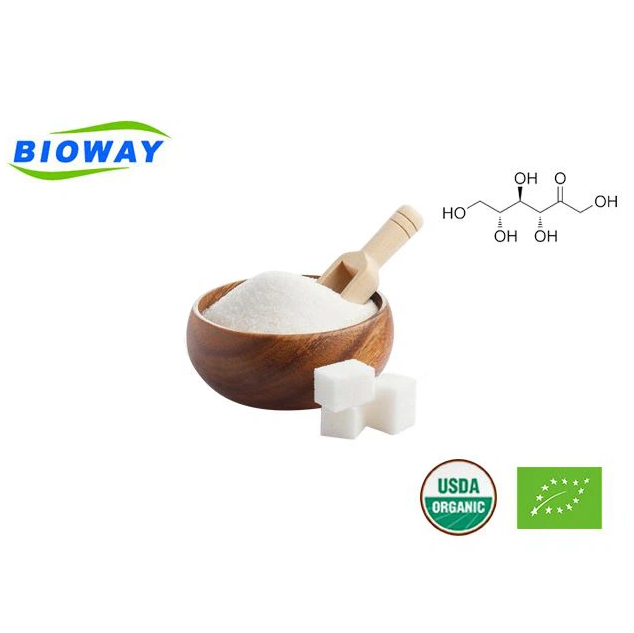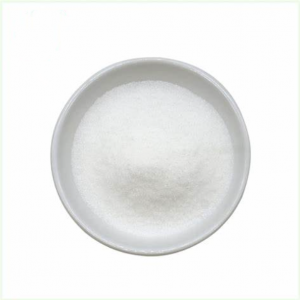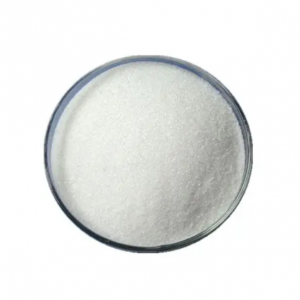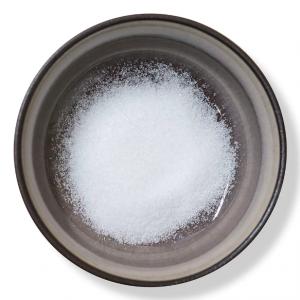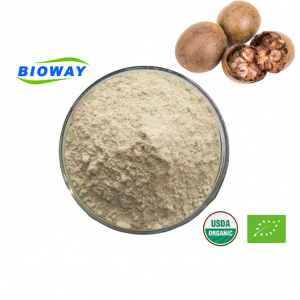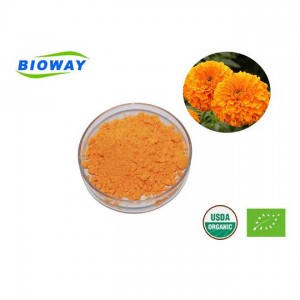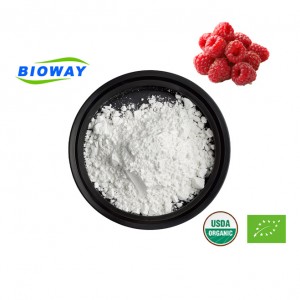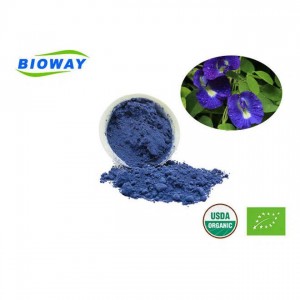Pure Allulose Powder for Sugar Substitute
Allulose is a type of sugar substitute that is gaining popularity as a low-calorie sweetener. It is a naturally occurring sugar found in small quantities in foods like wheat, figs, and raisins. Allulose has a similar taste and texture to regular sugar but with only a fraction of the calories.
One of the main reasons allulose is used as a sugar substitute is because it has significantly fewer calories compared to traditional sugar. While regular sugar contains about 4 calories per gram, allulose contains only 0.4 calories per gram. This makes it a suitable option for those who are looking to reduce their calorie intake or manage their weight.
Allulose also has a low glycemic index, meaning it does not cause a rapid rise in blood sugar levels when consumed. This makes it an appealing choice for individuals with diabetes or those following a low-carb or ketogenic diet.
Furthermore, allulose does not contribute to tooth decay, as it does not promote bacterial growth in the mouth as regular sugar does.
It is important to note that while allulose is considered safe for most individuals, it may cause digestive discomfort or have a laxative effect when consumed in large amounts. It is advisable to start with small quantities and gradually increase intake to assess individual tolerance.
Overall, allulose can be used as a sugar substitute in a variety of foods and beverages, including baked goods, sauces, and beverages, to provide sweetness while reducing calorie content.
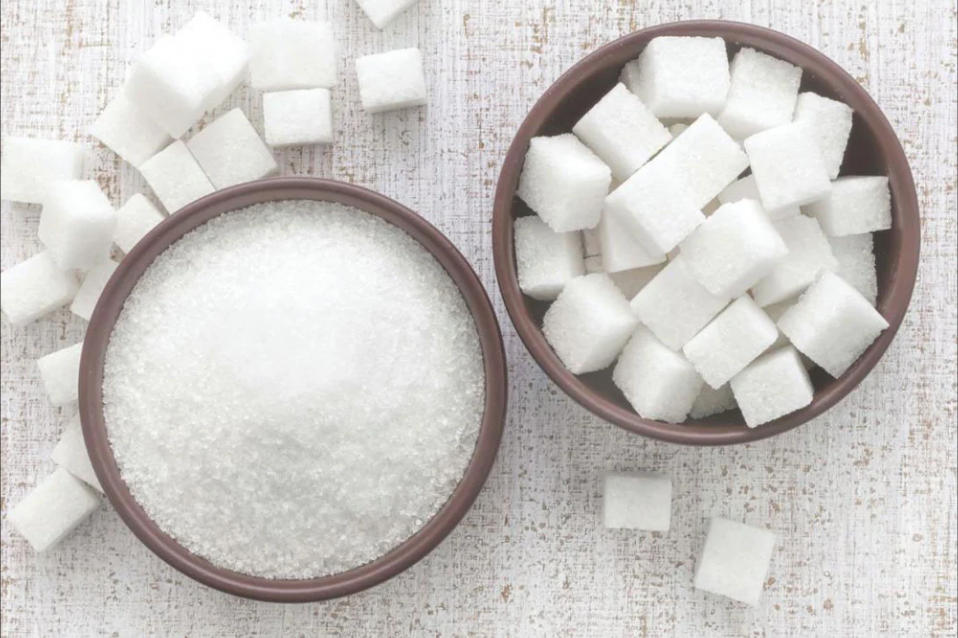
| Product name | Allulose powder |
| Appearance | White crystal powder or white powder |
| Taste | Sweet, no odor |
| Allulose content(on dry basis),% | ≥98.5 |
| Moisture,% | ≤1% |
| PH | 3.0-7.0 |
| Ash,% | ≤0.5 |
| Arsenic(As),(mg/kg) | ≤0.5 |
| Lead(Pb),(mg/kg) | ≤0.5 |
| Total Aerobic Count(CFU/g) | ≤1000 |
| Total Coliform(MPN/100g) | ≤30 |
| Mould and Yeast(CFU/g) | ≤25 |
| Staphylococcus aureus(CFU/g) | <30 |
| Salmonella | Negative |
Allulose has several notable features as a sugar substitute:
1. Low-Calorie: Allulose is a low-calorie sweetener, containing only 0.4 calories per gram compared to 4 calories per gram in regular sugar. This makes it an excellent option for those looking to reduce their caloric intake.
2. Natural Source: Allulose occurs naturally in small amounts in foods like figs, raisins, and wheat. It can also be produced commercially from corn or sugar cane.
3. Taste and Texture: Allulose has a taste and texture very similar to regular sugar, making it a great option for those who desire a sweet taste without the added calories. It doesn't have a bitter or aftertaste like some artificial sweeteners.
4. Low Glycemic Impact: Allulose does not raise blood sugar levels as quickly as regular sugar, making it suitable for those with diabetes or individuals following a low-sugar or low-carb diet. It has a minimal impact on blood glucose levels.
5. Versatility: Allulose can be used as a substitute for sugar in a wide range of recipes, including beverages, baked goods, sauces, and dressings. It has similar properties to sugar when it comes to browning and caramelization during cooking.
6. Tooth-Friendly: Allulose does not promote tooth decay as it does not feed oral bacteria like regular sugar does. This makes it a desirable choice for oral health.
7. Digestive Tolerance: Allulose is generally well tolerated by most people. It does not cause a significant increase in gas or bloating compared to some other sugar substitutes. However, consuming excessive amounts may have a laxative effect or cause digestive discomfort, so moderation is key.
When using allulose as a sugar substitute, it's important to keep in mind the individual's dietary needs and tolerance. As always, it's recommended to consult with a healthcare professional or registered dietitian for personalized advice.

Allulose, a sugar substitute, has several potential health benefits:
1. Low calorie: Allulose contains significantly fewer calories compared to regular sugar. It has about 0.4 calories per gram, making it a suitable choice for those looking to reduce calorie intake or manage weight.
2. Low glycemic index: Allulose has a low glycemic index, meaning it does not cause a rapid increase in blood sugar levels. This makes it beneficial for individuals with diabetes or those following a low-carb or ketogenic diet.
3. Tooth-friendly: Allulose does not promote tooth decay, as it is not readily fermented by oral bacteria. Unlike regular sugar, it does not provide fuel for bacteria to produce harmful acids that can damage tooth enamel.
4. Reduced sugar intake: Allulose can help individuals reduce their overall sugar consumption by providing a sweet taste without the high calorie and sugar content of regular sugar.
5. Appetite control: Some research suggests that allulose may contribute to feelings of satiety and help control hunger. This can be beneficial for weight management and reducing overeating.
6. Suitable for certain diets: Allulose is often used in low-carb or ketogenic diets as it does not significantly impact blood sugar or insulin levels.
It's important to note that while allulose has potential health benefits, like any sweetener, moderation is key. Individuals with specific health conditions or dietary restrictions should consult with a healthcare professional before adding allulose or any other sugar substitute to their diet.
Allulose sugar substitute has a range of application fields. Some common areas where allulose is used include:
1. Food and Beverage Industry: Allulose is commonly used in the food and beverage industry as a sugar substitute. It can be added to a variety of products such as carbonated drinks, fruit juices, energy bars, ice cream, yogurt, desserts, baked goods, condiments, and more. Allulose helps provide sweetness without calories and offers a similar taste profile to regular sugar.
2. Diabetic and Low-Sugar Products: Given its low glycemic impact and minimal effect on blood sugar levels, allulose is often used in diabetic-friendly products and low-sugar food formulations. It allows individuals with diabetes or those looking to manage their blood sugar levels to enjoy sweetened foods without the negative health impacts of regular sugar.
3. Weight Management and Low-Calorie Foods: Allulose's low-calorie content makes it suitable for weight management and the production of low-calorie food products. It can be used to reduce the overall calorie content in recipes and products while maintaining sweetness.
4. Health and Wellness Products: Allulose finds application in health and wellness products as a sugar substitute. It is used in protein bars, meal replacement shakes, dietary supplements, and other wellness products, offering a sweet taste without adding unnecessary calories.
5. Functional Foods: Functional foods, which are designed to provide health benefits beyond basic nutrition, often incorporate allulose as a sugar substitute. These products could include fiber-enriched bars, prebiotic foods, gut health-promoting snacks, and more.
6. Home Baking and Cooking: Allulose can also be used as a sugar substitute in home baking and cooking. It can be measured and used in recipes just like regular sugar, providing a similar taste and texture in the final product.
Remember, while allulose offers several benefits, it's still essential to use it in moderation and consider individual dietary needs. Always follow product-specific guidelines and consult with healthcare professionals or registered dietitians for personalized advice.

Here is a simplified process chart flow for the production of allulose sugar substitute:
1. Source selection: Select a suitable raw material source, such as corn or wheat, that contains the necessary carbohydrates for the production of allulose.
2. Extraction: Extract the carbohydrates from the selected raw material source using methods like hydrolysis or enzymatic conversion. This process breaks down the complex carbohydrates into simple sugars.
3. Purification: Purify the extracted sugar solution to remove impurities like proteins, minerals, and other unwanted components. This can be done through processes like filtration, ion exchange, or activated carbon treatment.
4. Enzymatic conversion: Use specific enzymes, such as D-xylose isomerase, to convert the extracted sugars, such as glucose or fructose, into allulose. This enzymatic conversion process helps produce a high concentration of allulose.
5. Filtration and concentration: Filter the enzymatically converted solution to remove any remaining impurities. Concentrate the solution through processes like evaporation or membrane filtration to increase the allulose content.
6. Crystallization: Cool the concentrated solution to encourage the formation of allulose crystals. This step helps separate the allulose from the remaining solution.
7. Separation and drying: Separate the allulose crystals from the remaining liquid through methods like centrifugation or filtration. Dry the separated allulose crystals to remove any remaining moisture.
8. Packaging and storage: Package the dried allulose crystals in suitable containers to maintain their quality. Store the packaged allulose in a cool and dry environment to preserve its sweetness and properties.
It's important to note that the specific process flow and equipment used may vary depending on the manufacturer and their production methods. The above steps provide a general overview of the process involved in producing allulose as a sugar substitute.


Express
Under 100kg, 3-5Days
Door to door service easy to pick up the goods
By Sea
Over300kg, Around 30 Days
Port to port service professional clearance broker needed
By Air
100kg-1000kg, 5-7Days
Airport to airport service professional clearance broker needed

Pure Allulose Powder for Sugar Substitute is certified by Organic, BRC, ISO, HALAL, KOSHER, and HACCP certificates.

While allulose has gained popularity as a sugar substitute, it's important to consider some potential disadvantages:
1. Digestive issues: Consumption of allulose in large quantities may cause digestive discomfort such as bloating, flatulence, and diarrhea, particularly in individuals who are not accustomed to it. This is because allulose is not fully absorbed by the body and can ferment in the gut, leading to these gastrointestinal symptoms.
2. Caloric content: Although allulose is considered a low-calorie sweetener, it still contains approximately 0.4 calories per gram. While this is significantly lower than regular sugar, it is not completely calorie-free. Overconsumption of allulose, assuming it to be calorie-free, may lead to an unintentional increase in caloric intake.
3. Potential laxative effect: Some individuals may experience a laxative effect from consuming allulose, particularly in high amounts. This may manifest as increased stool frequency or loose stool. It is recommended to consume allulose in moderation to avoid this side effect.
4. Cost: Allulose is generally more expensive than traditional sugar. The cost of allulose can be a limiting factor for its wide-scale adoption in food and beverage products, making it less accessible to consumers in some cases.
It's important to note that everyone's response to allulose may vary, and these disadvantages may not be experienced by all individuals. Like with any food or ingredient, it is recommended to consume allulose in moderation and consult with a healthcare professional if you have specific dietary concerns or health conditions.

